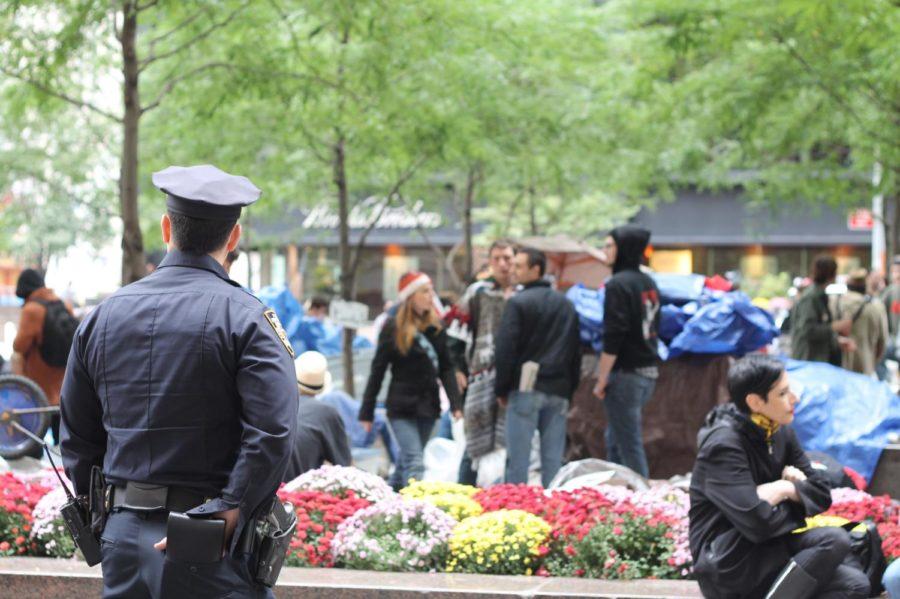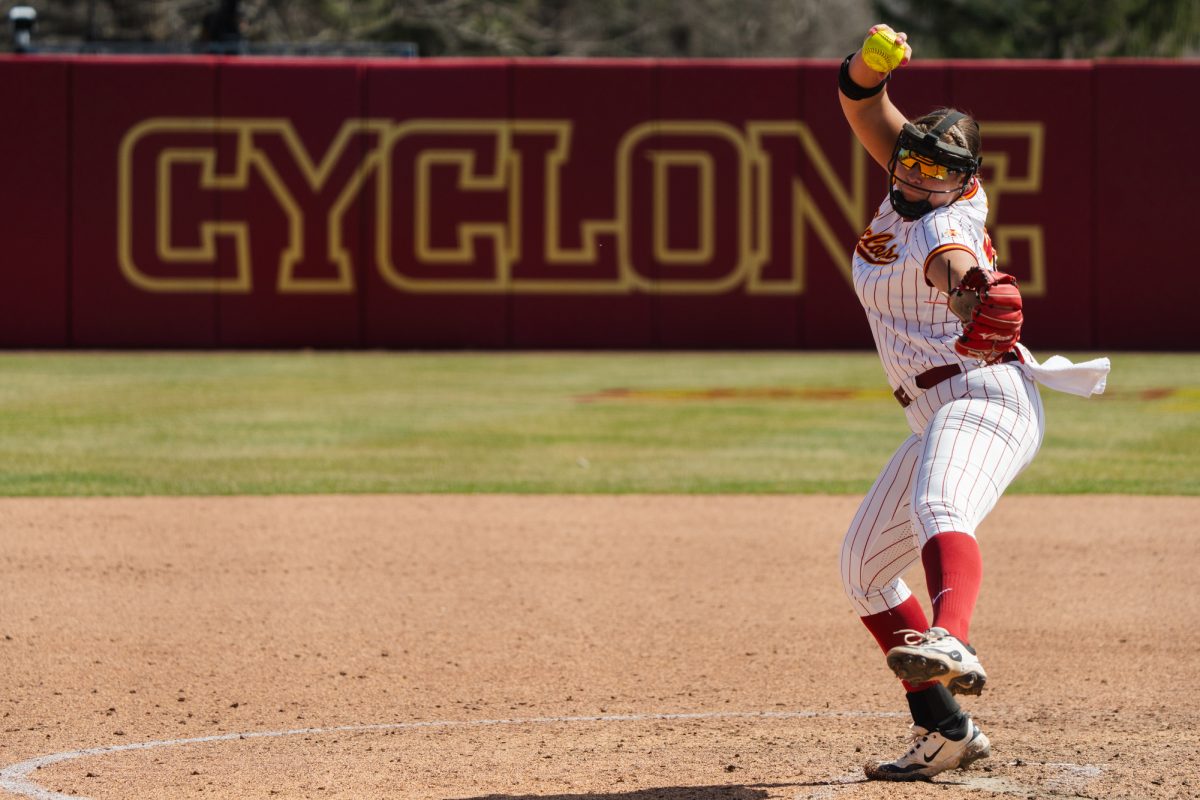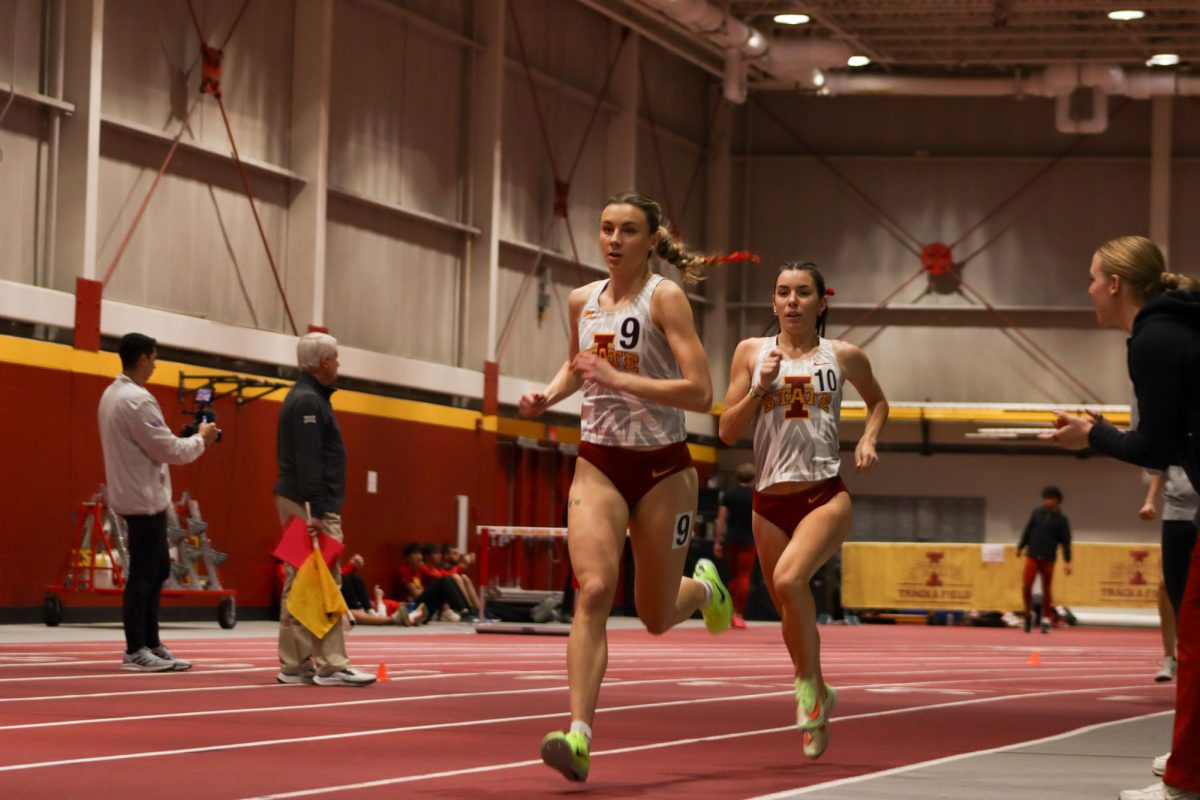‘Occupy Wall Street’ coming to Iowa
Photo courtesy of Jonathan Binder
Protesters have been camping out at New York’s Zuccotti Park for more than two weeks. Now, the Occupy Wall Street event is attracting a lot of street musicians and tourists with an atmosphere that appears more festive than angry on Monday, Oct. 3, 2011.
October 6, 2011
In the same year that has shown us toppled dictators through the Arab Spring and mass public protests against the European debt crisis, the frustration about political and corporate abuse has hit home in recent weeks sparked by a grass-roots movement known as “Occupy Wall Street.”
After what started as just a handful of camping protesters in lower Manhattan in the middle of September, the movement has turned into an almost instantaneous, nationwide protest against the financial institutions that the protesters say have come to completely dominate the political process in the United States.
On Wednesday, the protesters in New York were energized when they saw their numbers swell to thousands as they received the support of the local unions. At the same time, several other protests sprung up across the country in cities like Boston, Chicago, Los Angeles, Seattle and, most recently, Iowa.
However, none of these protests appear to have a single speaker or leader who can articulate the grievances of the protesters as a whole. But one thing is clear: The protesters are fed up with the amount of corporate money and influence that has infiltrated the political process in so many ways.
“A lot of the protests have to do with the dissatisfaction with amount of money in the political system,” said associate professor of political science David Peterson. “Their manifesto is a laundry list of progressive causes.”
This progressive identity appears to be consistent throughout the protests across the country as many of the protesters can be heard yelling, “We are the 99 percent,” in reference to their belief that the wealthiest Americans are not paying their fair share of taxes while wielding large amount of influence in the Washington.
“The protesters want to shine light on the growing inequality in the United States,” said Steffen Schmidt, university professor of political science. “The wealthy are doing very well … and this is a reaction to normal politics not listening.”
More specifically, a continuous message the protesters have brought up is the overturning of the Citizens United case. In 2010, the Supreme Court made a landmark decision in the case Citizens United v. The Federal Election Commission in which it held that the First Amendment protects corporate funding of independent political broadcasts during election season. In other words, corporations and other groups are free to give unlimited amounts of money to advertising a political agenda, usually in attack ads against a certain candidate.
This drew much criticism because many argued that it allowed corporations to take over the campaign process and essentially drown out the concerns of the working and middle class. This was exemplified during the 2010 midterm elections in which many freshman tea party Republicans, who tend to be friendly to corporations, were swept into office behind deafening corporate support.
With this, the protesters have not only set their sights on the Citizens United decision, but also the financial institutions that control much of the wealth in the country and fight so vigorously to keep every cent they earn.
“The protests go beyond Citizens United,” Peterson said. “A lot of it is focused toward Wall Street. And continued energy and momentum is key for it to continue.”
The same analysis was given by Schmidt, who noted that despite their left and progressive character, the protesters have a lot of support throughout the United States.
“They are progressive and liberal,” Schmidt said, “but their positions actually have a lot of support among many Americans, … and the unions jumping on board will provide lots of organization and money for the protests to continue.”
These protests may seem out of the immediate interests of many Iowans, but surprisingly the movement has already made an impact in Iowa. On Wednesday night, more than a hundred people in Iowa City met as a “general assembly” in Public Square One and voted to occupy College Green Park on Friday starting at 6 p.m.
Additionally, many other protests are planned for this weekend in Des Moines, Dubuque, Fairfield, Mason City, Cedar Falls and Cedar Rapids. Many also have called for campus walkouts by students and professors in an effort to express solidarity with the protesters.
“They are protesting in cities all across the state,” Schmidt said. “Americans get organized when things are not going that well … and there are a lot of frustrated liberals in Iowa.”







